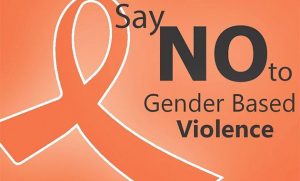(Image via Getty)
I shouldn’t be surprised by much of anything in our legal world any more, especially given the changes I have seen over the past four decades, but every once in a while, I read something that prompts me to question the author’s word choice. In other words, “What was he/she thinking?”
The latest example, at least for me, is a post in ATL about mandatory retirement and how some Biglaw firms welcome lateral partners who have reached that number at their current firms. Good for them. Remember how everyone has been saying that age is just a number, and that seventy is the new fifty? Are people still saying that? I don’t think so, except maybe here in La-La Land.
Yes, I read posts like this because I am that old. What caught my eye was a sentence about the dropoff in attorneys practicing between the ages of 65 and 70 — a “precipitous dropoff.” The next sentence, however, stunned me with its naiveté: “One slightly confounding variable is the fact that 91.4 percent of partners over the age of 65 are male, who represent a lower percentage of the 65+ population.” Huh?
“Confounding?” To whom exactly? What turnip truck did this person fall off of?
I, along with other ATL columnists, have been yammering for years about the difficulties that women lawyers have in rising to the top and staying there, given the competitive landscape of the profession — oops, business — today. So, for someone to be a teensy bit surprised about the huge disparity between male and female partners who practice past age 65 is not only neither startling nor confounding but, rather, just yet another example of how the practice is still an old boys club in many ways. Hopefully, as more and more of us dinosaurs go out to pasture, take dirt naps, or practice golf swings, the next generation of post-65 lawyers in Biglaw and elsewhere will see more women. Luckily, more women are now ascending in the profession, finally.
After all, statistically, women live longer than men.
I have taken a number of non-legal-writing classes over the years (What? You think I need more? Thank you for sharing.) and what every instructor has emphasized is to “show, not tell.” I think the same applies to us as well. It’s so easy for us to boast about numbers and the purported increasing diversity we claim to have, but numbers can be manipulated in many ways to achieve the desired result. We have only to look at the wreckage since 2000 of so many companies that cooked their books. Enron and WorldCom — names that the young’uns among us probably don’t know anything about — are just two examples.
It’s not what we are saying about diversity and inclusion, it’s what we are doing about it. It’s so easy to talk a good game, but to play it requires commitment to the long haul. The lack of diversity and inclusion did not appear overnight nor will it disappear overnight.
Whether leadership at law firms, corporations, nonprofits, and even bar associations is entrenched or rotates yearly, the commitment must be there and not just lip service as leadership moves from person to another, from one agenda to another. Hopefully, diversity and inclusion are on every agenda.
Last year, while still governor, California’s Jerry Brown signed into law a bill mandating that women be included on the corporate boards of publicly traded companies headquartered in the state. He wondered aloud whether the bill would pass constitutional muster.
Two lawsuits now raise that question. Judicial Watch filed the first, in August, challenging the law’s constitutionality. Pacific Legal Foundation has now joined the fray.
The Foundation’s attorney says, among other things, that the law isn’t needed, that corporations are putting more women on their boards. Glad to know that, but is it without the prompting of the law, or have companies just decided to do the right thing? I hope it’s the latter. What if there was no California law? Would those numbers be the same or even close?
And last but not least, last week I solicited suggestions for an appropriate term for a judge who was being disciplined, or even removed, for naughty (or worse) conduct on the bench. ATL uses the term “benchslap” for a court’s displeasure with misbehaving lawyers. How about “slapback” for misbehaving judges? Credit goes to attorney James Corning. (Yes, people do read my posts and even respond to them.)
Also, what about “slapbench?” (credit to attorney James Forde) or, if a judge is removed from the bench, “disrobed?” Sorry, I couldn’t resist. ATL editors, what do you think?
 Jill Switzer has been an active member of the State Bar of California for over 40 years. She remembers practicing law in a kinder, gentler time. She’s had a diverse legal career, including stints as a deputy district attorney, a solo practice, and several senior in-house gigs. She now mediates full-time, which gives her the opportunity to see dinosaurs, millennials, and those in-between interact — it’s not always civil. You can reach her by email at oldladylawyer@gmail.com.
Jill Switzer has been an active member of the State Bar of California for over 40 years. She remembers practicing law in a kinder, gentler time. She’s had a diverse legal career, including stints as a deputy district attorney, a solo practice, and several senior in-house gigs. She now mediates full-time, which gives her the opportunity to see dinosaurs, millennials, and those in-between interact — it’s not always civil. You can reach her by email at oldladylawyer@gmail.com.







 Kathryn Rubino is a Senior Editor at Above the Law, and host of
Kathryn Rubino is a Senior Editor at Above the Law, and host of 

 Jordan Rothman is a partner of
Jordan Rothman is a partner of 





